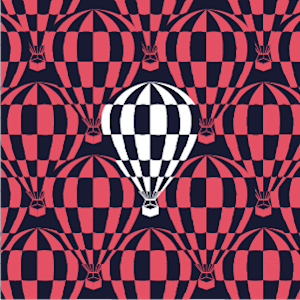The Ceramic Record of Granada
Granada | Spain
3
Heritage
Sustainability
Heritage Tour of ceramics, design, craft traditions, conservation at a historic Granada institution.
About
Book
Nearby
Chemi Marquez Morales
What is this?
At the edge of Granada’s Albaicín neighborhood stands a factory where Fajalauza has been making pottery the same way for over 500 years. Fajalauza is a living record of Granada’s artistic identity, tracing its techniques to the Al-Andalus period and the workshops once clustered near Puerta de Fajalauza. This ceramic tradition blends Islamic, Iberian, Andalusian influences into a style known across Spain: white enamel, cobalt blue and green glazes, and patterns that echo the Alhambra.
This tour, led by a member of the Fajalauza Foundation, opens parts of the site normally closed to the public: kiln rooms, workshop floors, the small museum where archive pieces sit beside recent works. The glazes echo those used for centuries, often inspired by the Alhambra.
Ceramics here were created for daily use: vessels to carry water, preserve food, identify homes, mark graves. Even now, their forms remain largely unchanged. Few places in Spain hold time, rhythm, and tradition in such balance.
What makes this unique?
Fajalauza is one of few surviving craft lineages in Spain with unbroken continuity from Post-Reconquista era to the present. Fajalauza tiles replaced originals in Patio de los Arrayanes. Still run by the Morales family since the 19th century, its techniques and motifs—heraldic eagles, grenadine sprigs, blue-green latticework—have remained largely unchanged. The factory’s location, firing techniques, and visual language have endured war, exile and mass production. It is here, in the factory, where each piece begins—still shaped by wheel, hand, story.
The Morales family now runs the Fajalauza Foundation which preserves its legacy. This experience offers access not only to the factory but to the people preserving it. The Foundation’s members guide you through kilns, archives, workshops, sharing their stories. The tour is about heritage—but also part of a larger effort to preserve and convert it into a cultural center and school. You become part of that.
What is the profile of the host?
You’ll be welcomed by Chemi Márquez Morales or one of his talented colleagues from Fundación Fajalauza. The Morales family has led Fajalauza since its founding in 1517, shaping Granada’s ceramic identity for over five centuries. Chemi, a direct descendant, now guides its creative and cultural direction—working to preserve its legacy at a critical turning point in its history.
Fajalauza is a national institution. Its works have appeared in international exhibitions, design circles, and documentaries, recognized as the soul of Granada’s ceramics tradition. The Fundación Fajalauza now works to safeguard the historic site, protect traditional methods, and share the knowledge held by the last generation of master artisans.
Chemi and his team are warm, fluent, and deeply knowledgeable—generous stewards of both heritage and hospitality. With them, you gain rare access to the art, stories, and meaning behind one of Spain’s most iconic crafts.
What to bring?
Just your curiosity.
Where is this located?
Where will we meet?
At the Fundacion Fajalauza factory in Granada, carretera Murcia 166. RED gate. There is a private parking space if you are driving. The factory is a 9 minute drive from the city center or a 25 minute walk.
Share
EUR 200
per person
Private
2 - 6 peopleⓘ
2 hours
The price includes all fees and tips.
Private guided tour of Fajalauza’s historic and modern ceramic workshops.
Access to kiln rooms, archive museum, and areas closed to the public.
Insights into the history, design, and production of traditional Granada ceramics.
Tapas and choice of alcoholic or nonalcoholic drink.
Hosted by a member of the Fajalauza Foundation.
Offered in English, Spanish
Private
2 - 6 peopleⓘ
2 hours
The price includes all fees and tips.
Private guided tour of Fajalauza’s historic and modern ceramic workshops.
Access to kiln rooms, archive museum, and areas closed to the public.
Insights into the history, design, and production of traditional Granada ceramics.
Tapas and choice of alcoholic or nonalcoholic drink.
Hosted by a member of the Fajalauza Foundation.
Offered in English, Spanish
